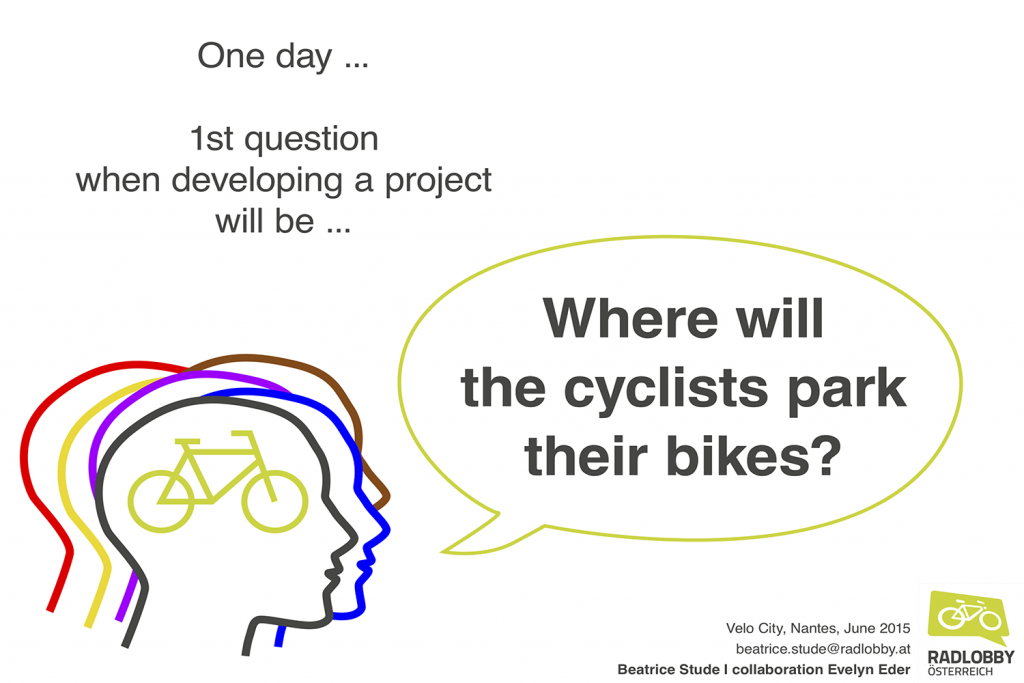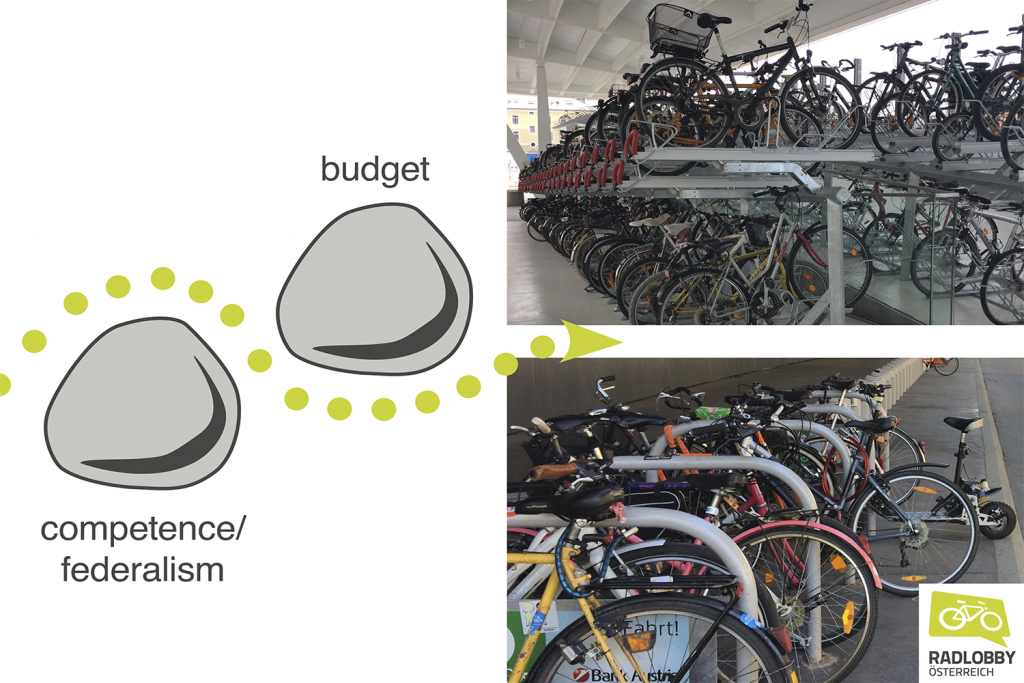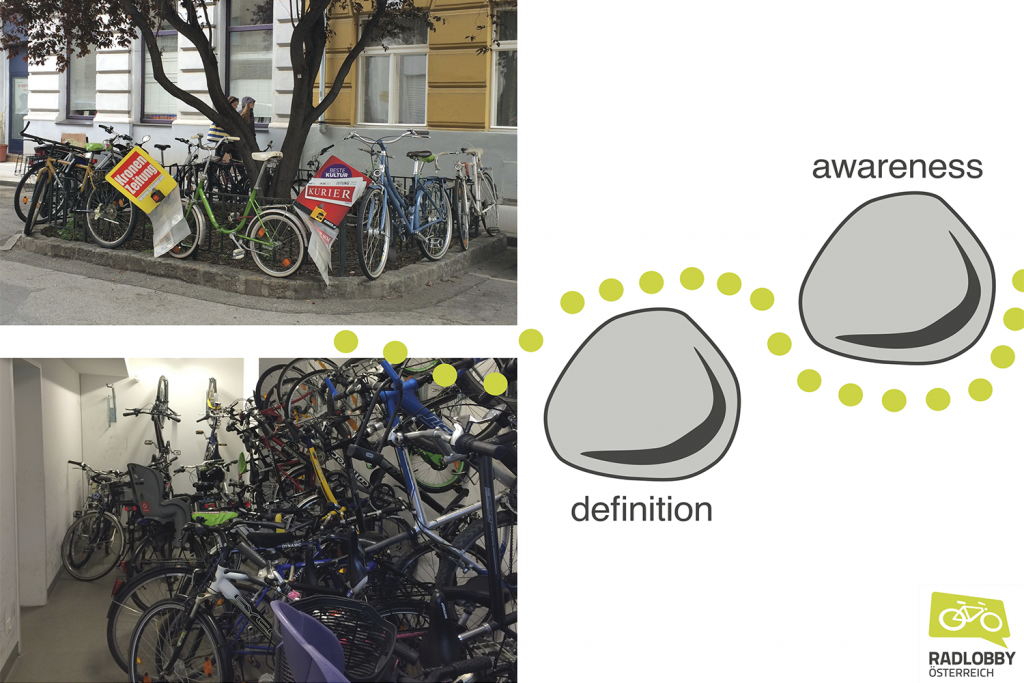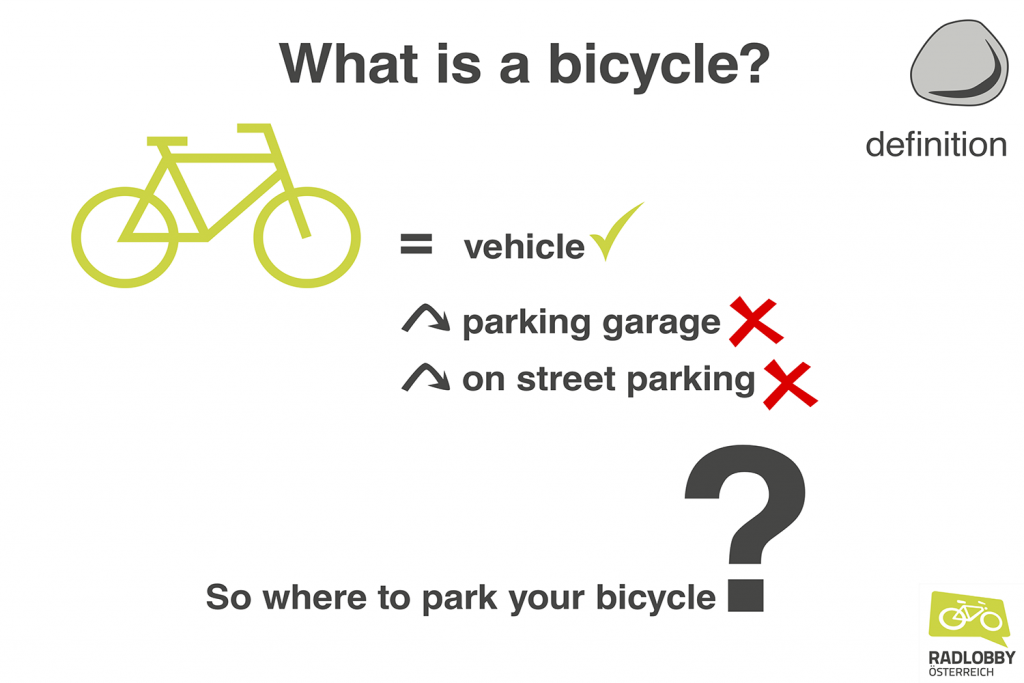In June 2015 I represented the Austrian Cycling Federation at the Velo-City in Nantes and represented:
Bike Parking in Austria – chances and stumbling blocks
Our built surroundings – architecture as well as the design of public space – affects our mobility behaviour. It supports sustainable modes of transport at best. Buildings do have a live span of about 80 years, the design of public space approximately 10 to 20 years and more. Due to these long periods, there is a urgent need for compulsory standards which take the continuous increase in cycling as a mode of transport in daily life into account.
There are many definitions of regulations on bicycle parking in Austria, mainly in force on federal state level. There is a need for – a standardized minimum of regulations – on a national basis. Also to have a recognized scale to enable comparability, and therefore competition between the federal states and municipalities.
The harmonizing process can be used as analogy for the establishment of a nationwide mobility guideline. The movement of people – parking the bicycle at home, at work, infront of the kindergarten and shops, et cetera – needs a holistic approach to unitize minimal standards.
Since cities in Austria are growing, their traffic grows as well – which kind of traffic will depend on the conditions, which the built surroundings provide.
Abstract: Parking solutions for a ocean of bicycles
Car parking in Austria is important, bike parking isn’t. Cyclists often have no shelter or enough protection from theft for their bikes.
Architecture plays a crucial role in influencing our mobility. Thus considering the demands of bike parking facilities is an important part in any pro-cycling strategy. We want to shift the public discourse from being car-centric towards attractive and easy-to-use bike parking facilities and raising the quality of public space.
Our goal as Austrian Cycling Federation is to use the current process of standardizing building laws to establish standardized compulsory requirements for bicycle parking for every new and modified building throughout the nation and reduce the obligatory car parking at once. Changing street views – from the dominant rows of cars towards livable open space where everybody likes to be – will change minds and therefore habits, creating an upward spirale into a sustainable future.
In this workshop we will present and discuss our discoursive strategies which encompass the creation of awareness among decision makers as well as the lobbying for laws that contribute to the development of sustainable bike parking facilities. In addition we will remind developers of their responsibility to do more than the law asks for and to help shaping a bright future relying on sustainable mobility for everyone.
We would like to discuss and get feedback on our proposed minimum standards regarding the quality and quantity of bike parking. Our aim is to give advice and promote an open discussion with lobby groups as well as government and city authorities from other countries.



